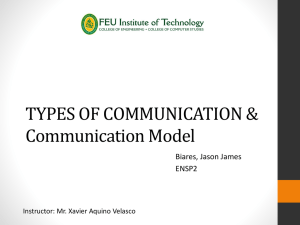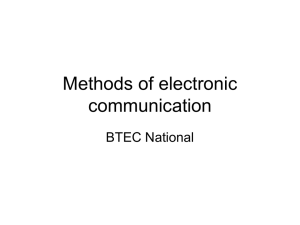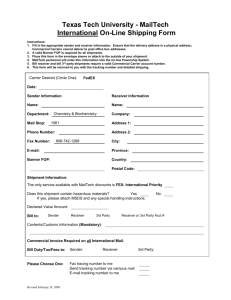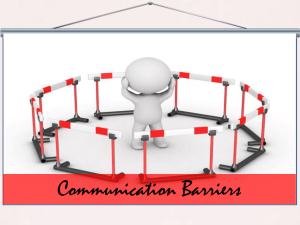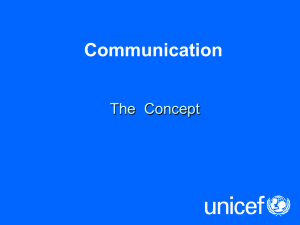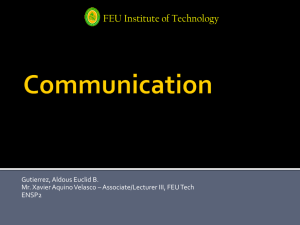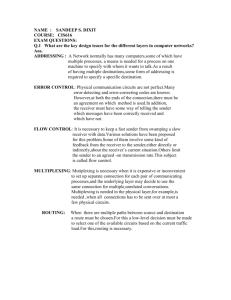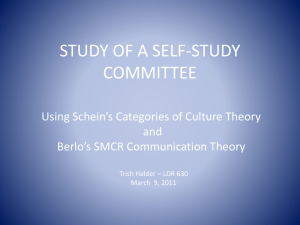Models of Communication
advertisement
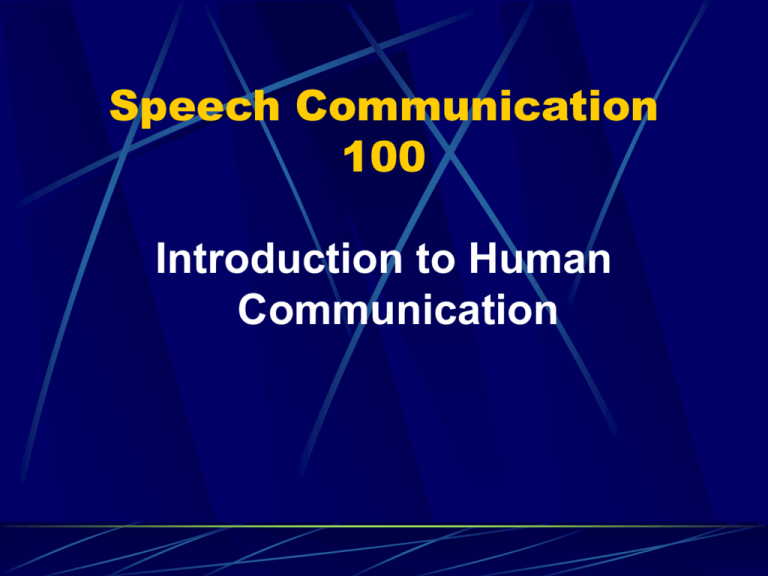
Speech Communication 100 Introduction to Human Communication AGENDA WELCOME! Communication Concepts Models of Communication One-Minute Exercises Introductions Welcome What this class is not Your role in this class Requirements of the class Communication Concepts Communication: the process by which people exchange and assign meaning A Note About Meaning for Words People engage in linguistic superstitions when they assume words have meaning in themselves BUT: Words were created by people Words have no power except what we are willing to give them Arbitrariness of Meanings Could Be Called: Frogs or rocks Horses or tulips But are Called: Dogs Trees Communication Concepts Communication: the process by which people exchange and assign meaning to messages Messages Verbal Cues: use of words Nonverbal Cues: use of elements beyond words An example: I never cheat on my homework. AGENDA WELCOME! Communication Concepts Models of Communication One-Minute Exercises Introductions Berlo’s SMCR Model Berlo’s SMCR Model S M C R Berlo’s SMCR Model S M C R Berlo’s SMCR Model S M C R Berlo’s SMCR Model S M C R Berlo’s SMCR Model S M C R Berlo’s SMCR Model as an Interactional Model S M C R Communication as Transaction Communicator 1 Communicator 2 Communication as Transaction Sender Receiver Communication as Transaction Sender Receiver Sender Receiver Communication as Transaction Sender Receiver Sender Receiver Communication as Transaction Sender Receiver Sender Receiver Functions of Communication The information function The relationship function The influence function AGENDA WELCOME! Communication Concepts Models of Communication One-Minute Exercises Introductions One Minute Exercises Confirmation and Disconfirmation Disconfirmation The Tangential Response: acknowledgement followed by changing the subject The Impervious Response: ignoring the other person The Interrupting Response: The Irrelevant or Incoherent Response: giving a reaction that is unrelated to the subject The Impersonal Response: reacting in a seemingly intellectualized form The Incongruous Response: and nonverbal cues inconsistent verbal Confirmation and Disconfirmation Confirmation Total Confirmation: indicating total understanding of another AKA: Direct Acknowledgement Agreement: agreeing with the other person Supporting Response: indicating empathy with the other person’s feelings Asking for clarification Expression of positive feeling Compliments AGENDA WELCOME! Communication Concepts Models of Communication One Minute Exercises Orienting to Others Orienting to Others Interview Another Person: Basic Information (name, major, vital information) Unique Information (unique background, accomplishment, or goals) Prepare a Brief Introduction (between one and two minutes) Grading 1. This activity is Activity 1 2. Graded on basis of coverage of materials and abiding by instructions presented before the presentation is made. 3. Use of notes on one side of one card are permitted 4. Presentations may not be read or memorized (nor may major portions thereof) 5. Failure to abide by item 3 or 4 results in a maximum grade of 60%
